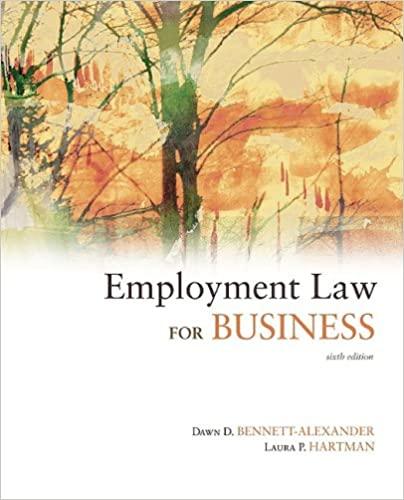Question
If seems that the possibilities of biotechnology, geneticsand synthetic biology radically challenge the standard legal definition of 'originality', 'ingenuity' or 'invention'.Please read the articles of
If seems that the possibilities of biotechnology, geneticsand synthetic biology radically challenge the standard legal definition of 'originality', 'ingenuity' or 'invention'.Please read the articles of Pottage/ Sherman Organism's and Manufacturers, and Sherman on Patenting Genes in Australia (the Rai/ Boyle's article on Synthetic Biology.
Questions: (1) In their article on Organism's and Manufacturer's Pottage and Sherman make the following remark: "Held in its textual body, the inventive idea retains the power to 'inform' the construction of material artefacts, and the statutory requirement that the invention be disclosed in writing presupposes this ability to disclose and communicate a genetic idea through textual embodiments."
(2) Why is this 'presupposition' - in their eyes - problematic? Put differently: How do they, more generally, judge the influence of new biotechnologies and geneticson patenting/ labellingpractices?
(3) What is your [legal] positionconcerning thepatenting of plant or human DNA? Are these products that deserve copyright protection or do these inventions ought to be 'open access' knowledge?
Step by Step Solution
There are 3 Steps involved in it
Step: 1

Get Instant Access to Expert-Tailored Solutions
See step-by-step solutions with expert insights and AI powered tools for academic success
Step: 2

Step: 3

Ace Your Homework with AI
Get the answers you need in no time with our AI-driven, step-by-step assistance
Get Started


